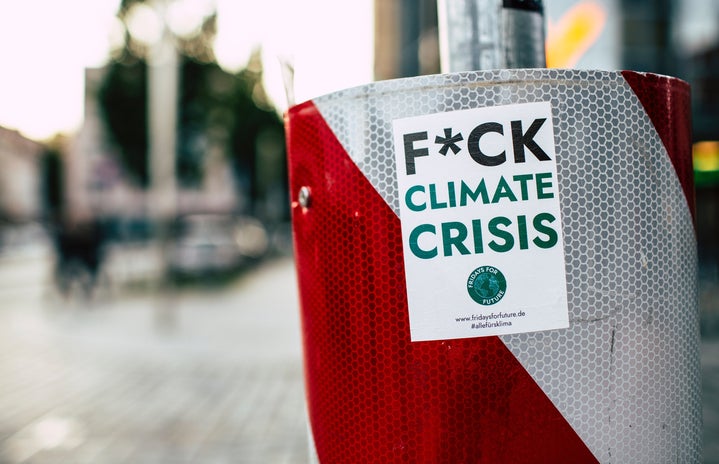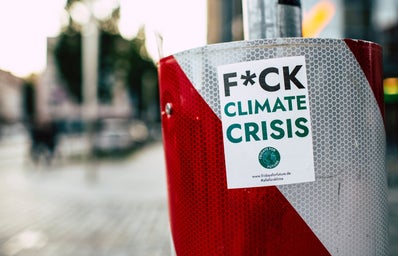Although most people consider the environmental movement to be primarily concerned with climate change, the environmental issues the planet faces are intricately connected to racism and colonialism. While we all suffer the impacts of climate change, we do not feel the impacts equally and that distribution is not random.
Environmental racism is the idea that many minority and BIPOC communities, especially in the global south, will struggle with more risks, impacts, and issues from climate change and other environmental problems (“Explained..”). African American rights leader Benjamin Chavis defined environmental racism as “racial discrimination in environmental policy-making, the enforcement of regulations and laws, [and] the deliberate targeting of communities of colour for toxic waste facilities” (“Explained…”). Without the consideration of how class and race impacts environmental decisions, environmentalism will continue to be a movement that heightens, rather than interrupts, racism and inequality.
Environmental racism is evident in almost all countries and areas. For example, Louisiana’s river communities are polluted by oil companies, and this area is called “Cancer Alley” (“Explained…”). In 1984 in India, Union Carbide caused a gas spread throughout the city of Bhopal, causing the poor to suffer disproportionately due to less-secure houses (“Explained…”). In Canada, the Aamjiwnaang First Nation residents live in a dirty and polluted region, which contains the most petrochemical plants and refineries in the country, aptly named, “Chemical Valley” (“Explained…”). The examples are endless and yet environmental racism is rarely mentioned in environmental debates. Although mainstream environmental ideas often perpetuate the idea of ‘carbon footprints,’ it is not fair to measure individual impact when companies, structures, and countries have continuously forced disadvantaged people to bear the brunt of environmental destruction. Someone might use a metal straw, but if they’re upper-class, they might avoid the toxic waste sites and air pollution someone else can’t get out of. Until we address the systemic issues of environmental racism, the policies, arguments, and actions we take will remain unequal and ineffective.
In addition to environmental racism, the capitalism and industrialization of countries like the United Kingdom, Australia, the United States, and Canada stem from a long practice of colonialism. While Indigenous activists have fought for years to preserve land, deny pipelines, and protect the environment, most people only recognize Greta Thunberg as the face of the environmental movement. In actuality, we should be paying attention, listening, and supporting Indigenous and Black activists who are part of movements like Land Back and environmental preservation. In fact, although Indigenous people only make up 6% of the global population, they protect almost 80% of the biodiversity on Earth (Chulani). While we can advocate veganism to decrease carbon dioxide emissions, environmental destruction stems from capitalism and colonialism itself. Not only do we need to advocate change in daily activities, but we need to stand behind decolonization and Indigenous movements, because they are the ones truly leading the fight against climate change.
In the structures and bureaucracies that discuss environmental destruction, Indigenous activists from local communities in Canada and from around the world, are often absent. For instance, at COP26, most members representing the global south could not attend due to COVID19 vaccine access, differing travel rules, and other issues related to the pandemic (Lakhani). The issue of unequal representation not only affects the voices that we listen to for environmental policies, but changes the actions we take. While other members, like those from Canada and the United Kingdom, often advocate for environmental solutions like biotech, solar power, and geothermal technology, Indigenous activists see those methods as preserving colonial and capitalist ideologies that will continue to cause problems (Lakhani). Like society’s appropriation of dream-catchers, spirit animals, and other ideas from Indigenous communities, we do not really listen or respect what Indigenous activists have to say. Indigenous activists point out salient and valid critiques of the impacts of colonialism and capitalism. If we continue to exclude, avoid, and ignore Indigenous activists of the environmental movement, we will continue to face the issues of human greed and capitalism destroying the environment. To reframe the discussion, it’s important to support and donate to Indigenous environmental groups like the NDN Collective and Minga Indigena (“COP26…”).
Mainstream environmentalism, and the environmental movement itself, has become closed off to the very people who created and sustained it. Like feminism, environmentalism obscures the Indigenous, Black, and other disadvantaged communities that it serves to protect. While some scoff at ‘tree-hugger’ environmentalists, picturing a white hippie from the 70s, environmentalism is an issue that involves and impacts all other structures. In order to stop climate change, we need a deeper look at systemic issues and that starts with listening and prioritizing Indigenous and BIPOC voices to combat colonialism and capitalism.
Resources:
“COP26: 5 Indigenous Activists & Movements You Should Know About.” Global Citizen, https://www.globalcitizen.org/en/content/cop26-indigenous-activists-organizations-movements/.
Chulani, Nikhita, and Neelam Tailor. “Indigenous Activists on Tackling the Climate Crisis: ‘We Have Done More than Any Government’ – Video.” The Guardian, Guardian News and Media, 4 Nov. 2021, https://www.theguardian.com/environment/video/2021/nov/04/indigenous-activists-tackling-climate-crisis-done-more-than-any-government-cop26-video.
Lakhani, Nina. “A Continuation of Colonialism’: Indigenous Activists Say Their Voices Are Missing at COP26.” The Guardian, Guardian News and Media, 3 Nov. 2021, https://www.theguardian.com/environment/2021/nov/02/cop26-indigenous-activists-climate-crisis.“Explained:
What Is Environmental Racism and How It Hits Poorest the Hardest.” cnbctv18.Com, 18 Feb. 2022, https://www.cnbctv18.com/environment/explained-what-is-environmental-racism-and-how-it-hits-poorest-the-hardest-12533182.htm.


